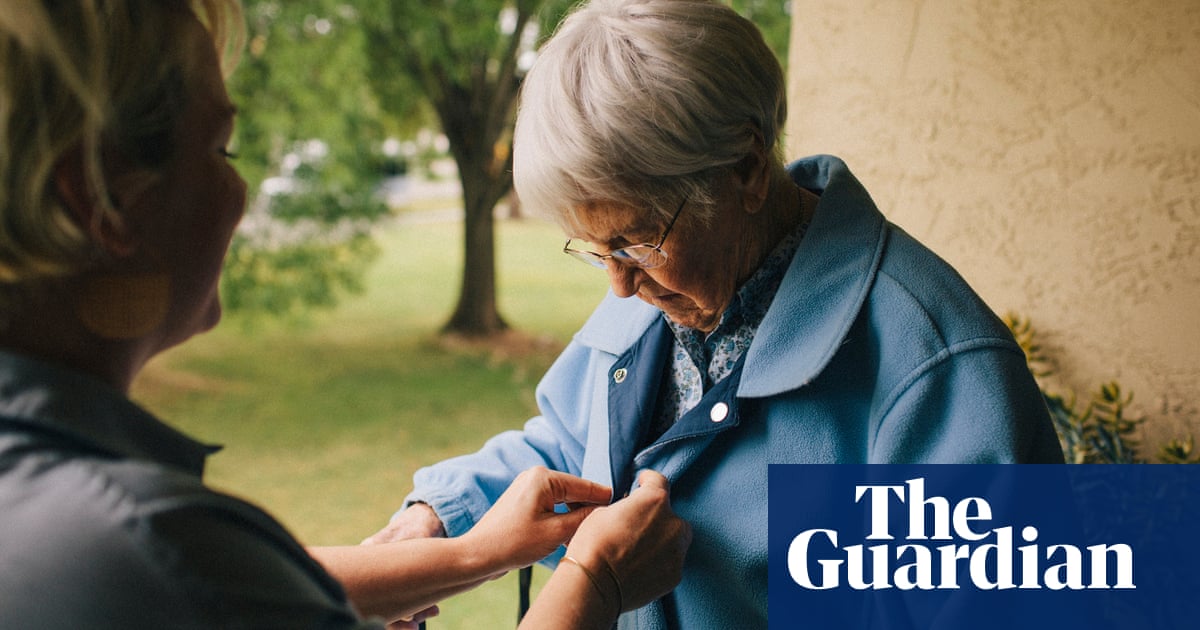
A cross-party group of MPs has called on the government’s public spending watchdog to investigate the growing scandal that has plunged tens of thousands of unpaid carers into debt and left some with criminal convictions after unwittingly breaching benefit rules.
The Commons work and pensions select committee said it was concerned with how the government was clawing back huge sums from carers, and in some cases prosecuting them for fraud, five years after it promised to tackle carer’s allowance overpayments.
People who claim benefits for looking after sick, disabled and frail relatives have been heavily penalised for often minor and inadvertent breaches of earnings limits.
Overpayments happen when someone who claims £81-a-week carer’s allowance breaches a government-imposed cap which means they cannot earn more than £151 a week in a paid job.
The Guardian revealed on Thursday that the Department for Work and Pensions (DWP) has failed to fully resource the checking of electronic alerts which identify potential breaches, leading to around 30,000 overpayments each year.
The latest figures show 156,000 carers are repaying earnings overpayments incurred in recent years, with benefits officials clawing back sums greater than £5,000 from 11,600 of them. There were 34,500 overpayments last year alone, suggesting one in five unpaid carers with a part-time job fell foul of the rules.
In a letter to Gareth Davies, the head of the National Audit Office (NAO), the work and pensions committee chair, Stephen Timms, says a range of recent evidence – including from carers themselves – had led the committee to “conclude that problems remain with carer’s allowance”.
“We appreciate the NAO has limited resources, but we think a further investigation is merited, given the scale of the problem, the lack of progress made since 2019 and the cost to the taxpayer of a system that fails to prevent or rectify overpayments,” he writes.
An NAO spokesperson said: “We can confirm receipt of the letter and will reply in due course.”
A second NAO investigation within five years into the overpayments would be humiliating for the DWP, and, depending on the findings, put heavy pressure on ministers to make changes. The NAO scrutinises the effectiveness of government spending and whether its policies result in value for money.
The NAO investigated carer’s overpayments in 2019 at the request of the same committee, which produced a highly critical report that year. It concluded most earnings-related overpayments were accidental, while the poor design of the benefit “set carers up for a fall”.
In its formal response in November 2019 the DWP promised a new automated system of real-time alerts based on HMRC earnings data should “stop overpayments occurring in the first place”.
However, new figures show benefits officials routinely investigate just half of the thousands of automatic alerts each month warning them of earnings breaches.
At the heart of the scandal are draconian “cliff edge” earnings rules which mean carers who work part-time must pay back their entire £81.90 allowance if they earn even a penny more than £151 a week. In one typical case, an unpaid carer who earned just £58 over the limit in total over several weeks faced a demand for £1,750.
Many carers are unaware they have breached the limit until they are contacted by officials, often months later, and forced to repay what have often grown to huge sums. New figures reveal the highest value overpayment incurred by an individual carer in 2023-24 was between £40,000 and £50,000. There were 1,300 overpayments of between £5,000 and £20,000, and 40 overpayments of more than £20,000.
Carers, who are regularly lauded as “unsung heroes” by ministers, have spoken of the devastating emotional and financial impact of being hit with overpayments when they are struggling to look after disabled, frail and elderly family members.
The DWP insists claimants are at fault if they do not inform officials of any changes in their circumstances, such as if they earn more money. Critics argue it is unethical for the DWP to penalise carers when its own alert systems could have spotted the infringement at an early stage and prevented the overpayment accruing.
Meanwhile, politicians in Northern Ireland have come under pressure to justify why thousands of carers were having to repay an average of £1,600 after falling foul of carer’s allowance earnings rules in the last three years.
Craig Harrison, public affairs manager at Carers NI, said: “There are big questions to answer as to why the Department [for Communities] isn’t spotting overpayments earlier and intervening to stop local carers accumulating such severe levels of debt.
“Does the department have a system in place to automatically intervene when a carer earns more than they’re allowed? That is surely a no-brainer, and the fact we don’t know the answer to such a basic question is just another reason why a major root-and-branch review of the carer’s allowance system is desperately needed.”












